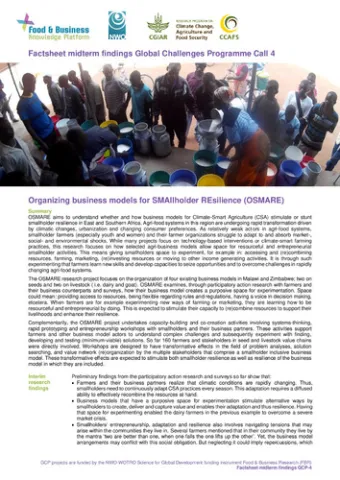Organizing business models for smallholder resilience (OSMARE): Factsheet midterm findings Global Challenges Programme Call 4

Abstract
OSMARE aims to understand whether and how business models for Climate-Smart Agriculture (CSA) stimulate or stunt smallholder resilience in East and Southern Africa. Agri-food systems in this region are undergoing rapid transformation driven by climatic changes, urbanization and changing consumer preferences. As relatively weak actors in agri-food systems, smallholder farmers (especially youth and women) and their farmer organizations struggle to adapt to and absorb market-, social- and environmental shocks. While many projects focus on technology-based interventions or climate-smart farming
practices, this research focuses on how selected agri-business models allow space for resourceful and entrepreneurial smallholder activities. This means giving smallholders space to experiment, for example in: accessing and (re)combining resources, farming, marketing, (re)investing resources or moving to other income generating activities. It is through such experimenting that farmers learn new skills and develop capacities to seize opportunities and to overcome challenges in rapidly changing agri-food systems.
